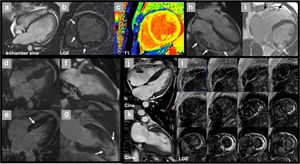The opening of the Hokuriku Shinkansen Line is ushering in exciting events and activities, revitalizing local culture after several years of disruption due to the COVID-19 pandemic and inclement weather.
On April 29, 2024, the city of Oyabe will host its much-anticipated Stone Pulling Festival, which marks the return of this exhilarating event after a five-year hiatus. The festival, organized by the Stone Pulling Festival Federation, is known for its vibrant display of traditional celebrating practices.
Yoshida Tsuneyoshi, the federation's chairman, expressed enthusiasm about the festival's return, stating, "We want to hold this festival grandly once again, thanks to everyone's cooperation." The event will feature the customary parades and cultural presentations expected to draw substantial crowds, aiming to restore the celebratory atmosphere the community has missed.
Accompanying the festivities, Oyabe's Mayor Mori Sakuhei emphasized the importance of community collaboration, delivering encouragement and support for the festival’s preparations during the federation's general meeting. The community aims not only to host the festival but also to reinforce local bonds and cheer the spirit of revival following the pandemic.
Meanwhile, another significant local culinary event is set to take place on February 9, 2024, at the multi-faceted "Massaki Food Festival" held at the Tada Fishing Port of Sado City. Marking its 20th anniversary, this festival will showcase the unique winter flavors of the region, including local delicacies such as cod soup and soba noodles. Over the years, the festival has grown, with community volunteers operating numerous food booths to delight visitors with authentic local cuisine.
Yet, challenges loom over this beloved festival as the organizers confront the prominent issue of aging within their volunteer ranks. Yoichi Sato, the secretary of the Massaki Food Group has shared his concerns saying, "I hope many people will come for the last time," indicating the festival's potential discontinuation as they face declining manpower. With several key members retiring or stepping down, the sustainability of the event is under serious scrutiny.
The Massaki Food Festival will feature not only delicious food but will also include traditional performances such as the Oni Daiko (Demon Drum) and fun interactive activities like treasure hunts for children amid the snowy backdrop, ensuring it remains engaging for all ages.
Participants and visitors have expressed excitement about both festivals. With the Hokuriku Shinkansen Line now extended, travel to these events has become significantly easier, promising new faces among the familiar attendees and boosting local economies. The Shinkansen offers high-speed access to and from major cities, enhancing the visibility and participation of these regional events.
The North-Eastern region has shown remarkable adaptability, transforming challenges posed by the pandemic and natural anomalies like heavy snowfalls to invigorate local custom and culture. Reports state the Hokuriku Shinkansen’s popularity is rising, especially on weekends when families and travelers flock to enjoy such unique festivals and local attractions available on the route.
Given the recently reported high occupancy rates for the shinkansen, it’s clear these timely festivals present not only cultural importance but also significant economic opportunities for the region. With the Stone Pulling Festival and the Massaki Food Festival set against this backdrop of renewed community spirit, they embody the vibrancy of the region's heritage and the shared enthusiasm for future celebrations.
Local leaders believe these events not only celebrate tradition but also act as keystones for revitalization efforts post-pandemic. They highlight the unyielding spirit of the local populace, who are committed to creating memorable experiences for visitors and nurturing community spirit.
The Hokuriku Shinkansen Line’s opening is more than just transportation; it’s about reconnecting with cultural roots, fostering collaboration among local residents, and ensuring these vibrant traditions continue to thrive amid modernity. The coming months will surely showcase how much these festivals mean to the community and the stakeholders involved.
Through these upcoming festivals, the historical and cultural narratives of Oyabe and Sado City come alive, exemplifying the resilience of local traditions against the tides of change. Together, the community welcomes the future with open arms, celebrating their past and laying the groundwork for years of festivities to come.



